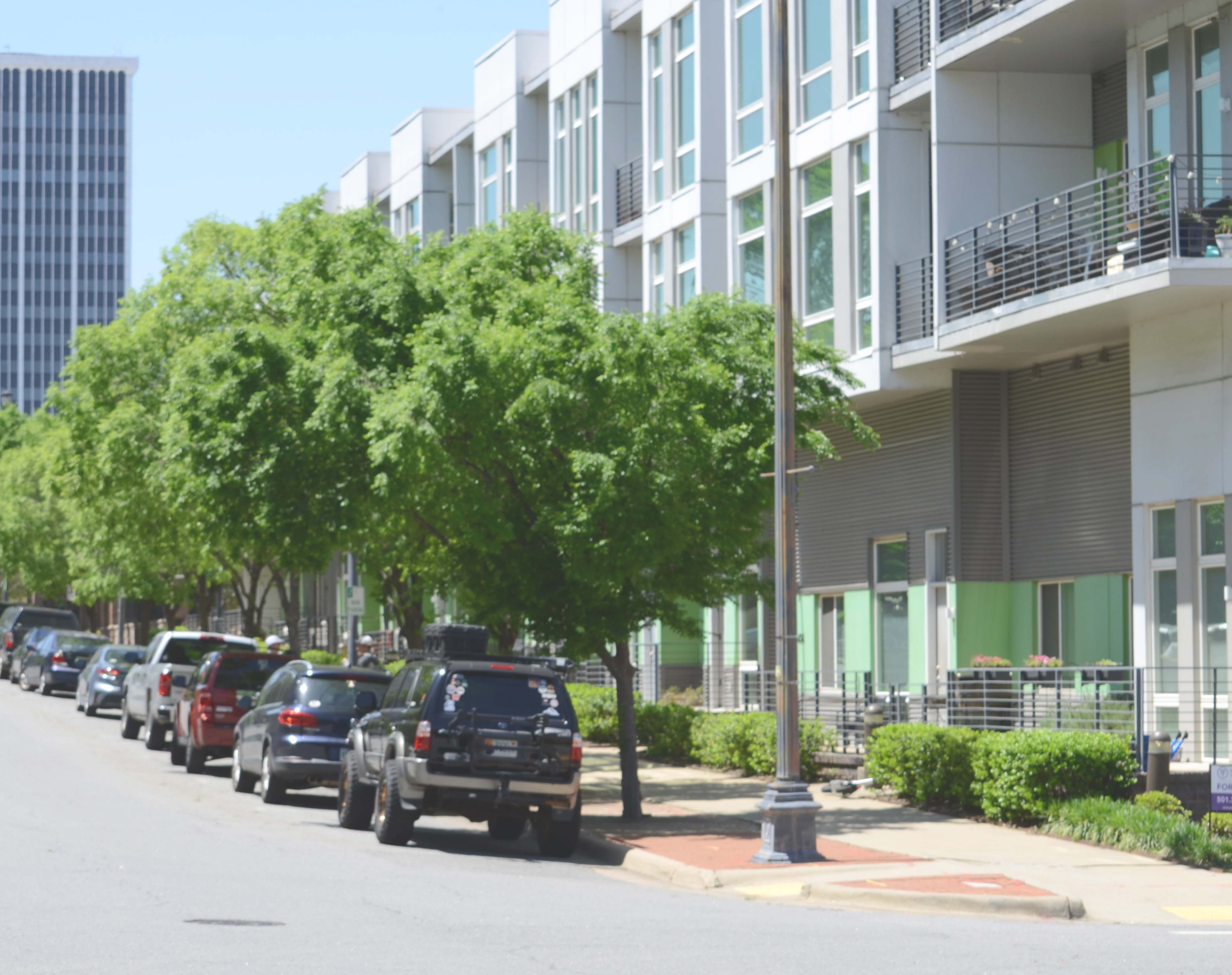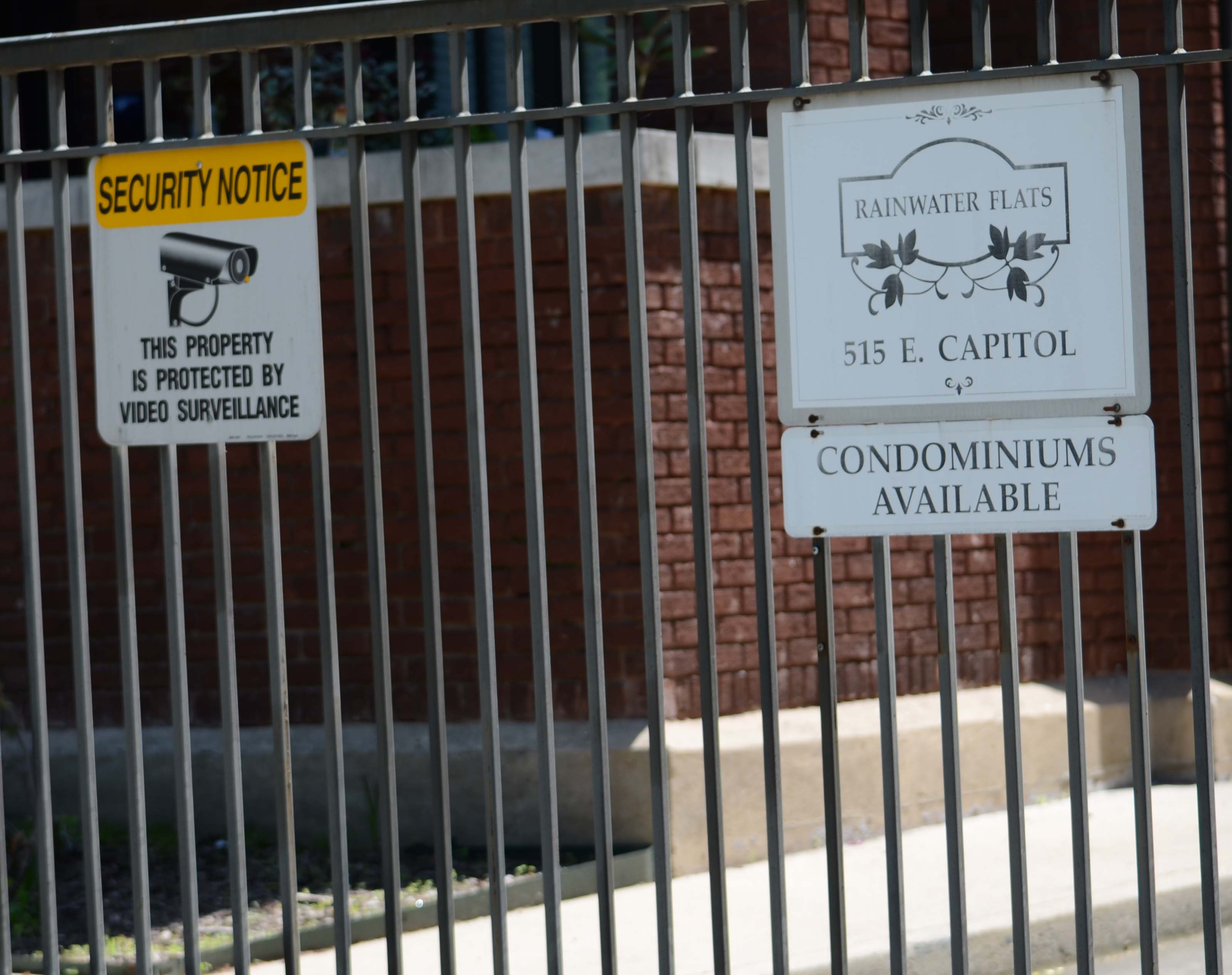Rental Relief Rejection: Arkansas sends COVID-19 funds back to federal government
May 2-8, 2022
By Wesley Brown
In a move that caught state housing advocates off guard, Gov. Asa Hutchinson said last month he is sending back millions of dollars in unused COVID-19 rental assistance to the federal government as the state’s employment levels and economic fortunes return to pre-pandemic norms.
During a Pen-and-Pad session at the State Capitol’s Governor’s Conference Room on April 22, Hutchinson told reporters that he has rejected more than $146 million in a second round of COVID-19 emergency rental assistance set aside for struggling Arkansans. Providing a copy of a letter he sent to Department of Treasury Secretary Janel Yellen, Hutchinson made the case that the state’s economy was doing well enough to support those in need.
“Our economy has returned, there’s jobs aplenty out there and we have existing programs in place for rental assistance that were pre-pandemic,” said Hutchison, who is term-limited out of office at the end of 2022.
Hutchinson made his comments against the backdrop of the state’s bellwether monthly revenue report from the state Department of Finance and Administration, which forecasts that Arkansas will see a $1 billion surplus for the fiscal year ending June 30.
According to a copy of Hutchinson’s letter provided to The Daily Record, the Arkansas Department of Human Services will not draw down on a second tranche of Emergency Rental Assistance (ERA) funds that were set aside under the $2.2 trillion American Rescue Plan (ARP). That second COVID-19 rescue plan was signed into law by President Joe Biden on March 11, 2021, exactly one year after the pandemic started.
On March 30, three weeks before Hutchinson penned his letter to Yellen, U.S. Treasury officials announced that through February, state and local Emergency Rental Assistance (ERA) grantees had made over 4.7 million payments to U.S. households and spent nearly $30 billion in assistance of the program’s total $46 billion.
The first round of ERA funds was allocated under the Consolidated Appropriations Act of 2021, which was signed into law by former President Donald Trump on Dec. 27, 2020. At the time, that legislation set aside some $25 billion to assist millions of Americans who were struggling to pay their rent at the height of the COVID-19 outbreak in late 2020 and early 2021. After Biden took office in early 2021, ARP added another $19 billion to extend the COVID-19 rental assistance program, now known as ERA2.
Treasury officials said they expect most of the remaining funds to be deployed to households or paid to grantees by the middle of 2022. As these emergency funds run out, the Treasury Department has begun reallocating the second tranche of funds, offering incentives to encourage state and local governments to commit additional funding.
“In just one year, the Emergency Rental Assistance program built a national infrastructure for eviction prevention that never existed before and has helped keep eviction rates well below historic averages throughout the pandemic,” said U.S. Treasury Deputy Secretary Adewale “Wally” Adeyemo. “As these emergency funds run out, now is the time for state and local governments to leverage this infrastructure to provide services like right-to-counsel programs and housing counselors that will help families avoid economic scarring long after COVID-19 is in the rear-view mirror.”
Hutchinson vs. Yellen
But Gov. Hutchinson did not take the bite. In his letter to Yellen, the popular Republican governor told Treasury officials that Arkansas will only draw down 39% of total ERA funds made available to the state under Biden’s rescue plan, using only those monies that provide rental assistance in combination with other housing stability programs. Hutchinson, however, said Arkansas still has access to more than $6.7 million in remaining ERA funds for the fiscal year to assist low-income tenants in U.S. Housing and Urban Development and the Community Services Block Grant programs.
“The economic climate here in our state is robust, there are economic opportunities available for our citizens who can work, and our focus is shifting from supporting individuals who may have had short-term economic impacts from the pandemic to helping families achieve long-term economic stability and growth, which will give them housing stability now and into the future,” Hutchinson wrote.
Hutchinson also apprised Yellen that the state’s Department of Human Services (DHS) had already closed its controversial COVID-19 era “Arkansas Rent Relief Program” with no intentions to reopen it using additional federal ERA funds. That program was paused in late January so DHS officials could figure out how funds could be paid to both landlords and tenants in Arkansas.
At the time, DHS officials said they would continue to process applications that had already been submitted and would consider reopening the program if available funding remained after earlier applications were paid out using the new payment process.
Through Jan. 31, the state’s rental relief program had only distributed $68 million in rental and utility assistance out of the $173 million allocated to the state of Arkansas. Of that total, DHS officials said there were more than 22,600 applications, two-thirds of which were paid directly to landlords and utility companies.
After the program was paused, there were applications in various stages of the DHS review pipeline that amounted to more than $50 million. State officials said more than $128 million in applications have been denied, canceled or withdrawn since the program began in May 2021.
Housing advocates say rental crisis not over
Kendall Lewellen, housing subject area manager for the Center for Arkansas Legal Services (CALS), told The Daily Record there are two distinct issues at work in Gov. Hutchinson’s recent executive order: the need for more housing stability services and the state’s refusal to accept further ERA2 funding.
“First, I commend the Governor’s efforts to expand housing stability services for poor Arkansans,” said Lewellen. “This enormous issue will take people, time and money to tackle effectively. By and large, people do not stop paying their bills just to see what happens. Evictions are normally caused by changes in circumstances such as family break-ups, job loss or injuries. By getting caseworkers involved, they can work on the root causes of eviction to help ensure that it does not happen again.”
Lewellen added that Arkansas already has a strong network of people and nonprofits involved in housing stability work every day. “I work for one of them as a nonprofit civil legal aid provider,” she said. “However, these programs do not have all the resources they need. I would love to see what these groups come up with if they put their heads together with $39 million in flexible funding.”
Secondly, CALS’ housing manager said the state’s refusal of $107 million in ERA2 funds will cause unnecessary suffering. She noted pandemic housing research by Matthew Desmond, author of the Pulitzer-Prize-winning book Evicted: Poverty and Profit in the American City and principal investigator at Princeton University’s Eviction Lab.
Drawing on tens of millions of records, the Eviction Lab has published the first ever dataset of evictions in America, going back to 2000. According to the Princeton University think tank, the U.S. has witnessed the largest drop in eviction filings on record, mainly due to expanded legal protections, federal rental bans and new social safety net programs enacted under the CARES Act and American Rescue Plan. Overall, the Eviction Lab estimates that nationwide at least 1.36 million eviction cases were prevented in 2021.
However, Lewellen warns that the crisis is not over as there are still many working-class families and struggling renters in Arkansas. Like Hutchinson, she said the state’s economy has come a long way since COVID-19 was declared a global epidemic in March 2020, but notes there was a housing crisis before the pandemic, and it continues to this day.
“There are still many, many desperate people about to lose their homes. We know from research by [Desmond] and others that eviction is a cause of poverty, not just a symptom of it,” said the CALS housing expert. “People don’t just lose their homes. They can also lose their possessions, jobs, health and even their children. I can’t imagine telling my clients that someone had the chance to help them but chose not to.
“The pandemic has given us a tremendous opportunity to fix this situation by giving us time and support to address this need, and we should make the most of it,” Lewellen concluded.
In rejecting the emergency rental funds from the Biden administration, Arkansas joins Nebraska as the only states not to apply for additional COVID-19 housing assistance. In Nebraska, Gov. Pete Ricketts sent a letter to Adeyemo at the U.S. Treasury in late April and said the state did not need the additional $48 million in federal rental assistance that was available.
Nebraska was originally allocated $120 million in ERA2, after receiving more than $150 million in the first round. Also in January, the Biden administration rejected requests by South Dakota officials to use the excess funds for other housing initiatives. South Dakota received $271 million in ERA funds but only handed out around $25 million.
Renters’ rights still tabled
This is also not the first time that Arkansas Legal Services has gone to bat for renters across the state. During the 2021 legislative session, Lewellen and other Arkansas housing advocates were instrumental in negotiations on House Bill 1563 that would have amended the Arkansas Residential Tenant-Landlord Act of 2007, requiring all state landlords to meet minimum rental housing standards.
Among many things, HB1563 would have required all residential rental properties to be structurally sound and have working locks, plumbing, electricity and heat, along with a few other basic living standards. Similar bills have failed to pass the several past legislative sessions due to opposition from the Arkansas Realtors Association.
According to Lynn Foster, a retired UA Little Rock Law School professor, Arkansas is the only state in the U.S. where renters essentially do not have any rights and can go to jail for not paying rent. Under current Arkansas law, the landlord of a tenant who is one day late on rent may order the tenant to vacate the premises within 10 days. If the tenant fails to do so, they are guilty of a separate misdemeanor offense for each day they fail to vacate the premises following the expiration of the 10-day notice and must pay a fine of up to $25 per day or offense.
During committee hearings at the State Capitol in early 2021, Foster also argued that hundreds of cases are filed each year by prosecutors booting renters out of their apartments. Tenants, often unaware of the criminal nature of the proceedings, may unwittingly find themselves later prosecuted for failure to appear, and be subject to large criminal fines, she said.
HB 1563 died in committee after the 93rd General Assembly adjourned sine die on April 24, 2021.
Photo Cutlines:
1. Gov. Asa Hutchinson says Arkansas will not draw down on remaining $146 million in federal Emergency Rental Assistance funds set aside during pandemic.
2. Gov. Asa Hutchinson turned back a second round of more than $146 million in federal Emergency Rental Assistance (ERA) funds, noting the state's economic fortunes are turning around since the COVID-19 pandemic began in early 2020. Under the Arkansas Rent Relief Program that ended in late January, the state Department of Human Services offered financial help to pay overdue and upcoming rent and utilities for eligible Arkansas renters. (Photos by The Daily Record staff)
3. Kendall Lewellen (left), housing subject area manager for the Center for Arkansas Legal Services, said the state’s refusal of $107 million worth of ERA funds will cause unnecessary suffering. Arkansas and Nebraska are the only states to refuse more than $46.5 billion in federal rental assistance during the pandemic.







